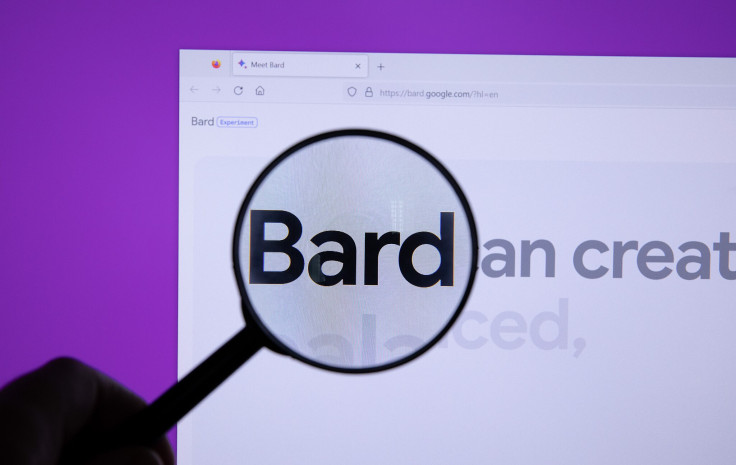Gemini 1.5 Crushes ChatGPT With Longest Context Window Yet
Moving beyond shallow chit-chat, Gemini 1.5 can navigate complex domains like geopolitics, unlike its competitors such as Anthropic's Claude and OpenAI's ChatGPT.

Google's AI model, Gemini, has surpassed OpenAI's ChatGPT in capabilities after a recent update. Notably, the new Gemini 1.5 is capable of processing more information.
To those unaware, Google recently rebranded its AI-powered chatbot Bard to Gemini, which alludes to the underlying AI model suite that powers Bard.
Gemini models are currently available in 3 versions, including Ultra, Pro, and Nano. Last week. Google rolled out its most advanced model dubbed Gemini 1.0 Ultra and unveiled the next chapter in its Gemini era - Gemini Advanced.
In a co-written blog post, Google CEO Sundar Pichai and Demis Hassabis, Head of Google DeepMind Artificial Intelligence and Research, have now introduced the next-generation language model, Gemini 1.5.
Today we're introducing Gemini 1.5, our next-generation AI model. It shows dramatically enhanced performance, including long-context understanding across modalities, which opens up new possibilities for people to create and build with AI → https://t.co/TjDy8GHIQS #GeminiAI pic.twitter.com/043FGirXB0
— Google (@Google) February 15, 2024
"Today, developers and Cloud customers can begin building with 1.0 Ultra too — with our Gemini API in AI Studio and in Vertex AI," Pichai wrote.
Gemini 1.5 vs. ChatGPT: Comparing cutting-edge language models
Gemini's upgraded iteration can consistently process a context window of up to 1 million tokens. For comparison, ChatGPT can process 512,000 tokens.
Gemini 1.5 Pro's 1,000,000+ token context length is incredible.
— Rowan Cheung (@rowancheung) February 18, 2024
I got early access and spent my Saturday night running tests.
Here are 6 impressive capabilities I found: pic.twitter.com/Rh8qGCUevE
Unlike its competitors ChatGPT and Anthropic's Claude which refrain from nuanced, wide-ranging conversations, Gemini 1.5 thrives on navigating complex domains like geopolitics.
Gemini 1.5 Pro outperformed its predecessor, 1.0 Pro on 87 per cent of benchmarks used for developing our large language models (LLMs) when it was tested on a comprehensive panel of text, code, image, audio and video evaluations.
Likewise, Gemini 1.5 Pro maintained its impressive performance even with an expanded context window. Demonstrating impressive precision in the Needle In A Haystack (NIAH) evaluation, 1.5 Pro successfully located the hidden text within long documents 99 per cent of the time.
As if that weren't enough, Gemini 1.5 Pro exhibited impressive "in-context learning" skills. In other words, it acquires new skills directly from extensive prompts, eliminating the need for additional fine-tuning.
In December, we launched Gemini 1.0 Pro. Today, we're introducing Gemini 1.5 Pro! 🚀
— Sundar Pichai (@sundarpichai) February 15, 2024
This next-gen model uses a Mixture-of-Experts (MoE) approach for more efficient training & higher-quality responses. Gemini 1.5 Pro, our mid-sized model, will soon come standard with a… pic.twitter.com/m2BNufHd8C
OpenAI is gearing up to compete with Google by making its foray into the web search segment. Reportedly, the rival web search will take advantage of learnings from ChatGPT. Aside from this, the Sam Altman-led AI startup is set to unveil its highly-anticipated LLM, GPT-5, which is expected to boast smarter generative abilities.
Meanwhile, the search giant is focusing more on incorporating AI into its products. For instance, Google added 3 new generative AI features to the Chrome browser - Organize Similar Tabs, generative AI wallpapers and Help Me Write.
Likewise, Google's new AI tool, Duet, helps you work smarter by automatically generating speaker notes in Slides and summarising your meetings in Meet.
Analysts, however, believe big companies like Google or Facebook need to be clearer about what they're doing with AI and inform people about what they are working on. This will help mitigate potential societal harm arising from unrestricted deployment.
© Copyright IBTimes 2025. All rights reserved.






















